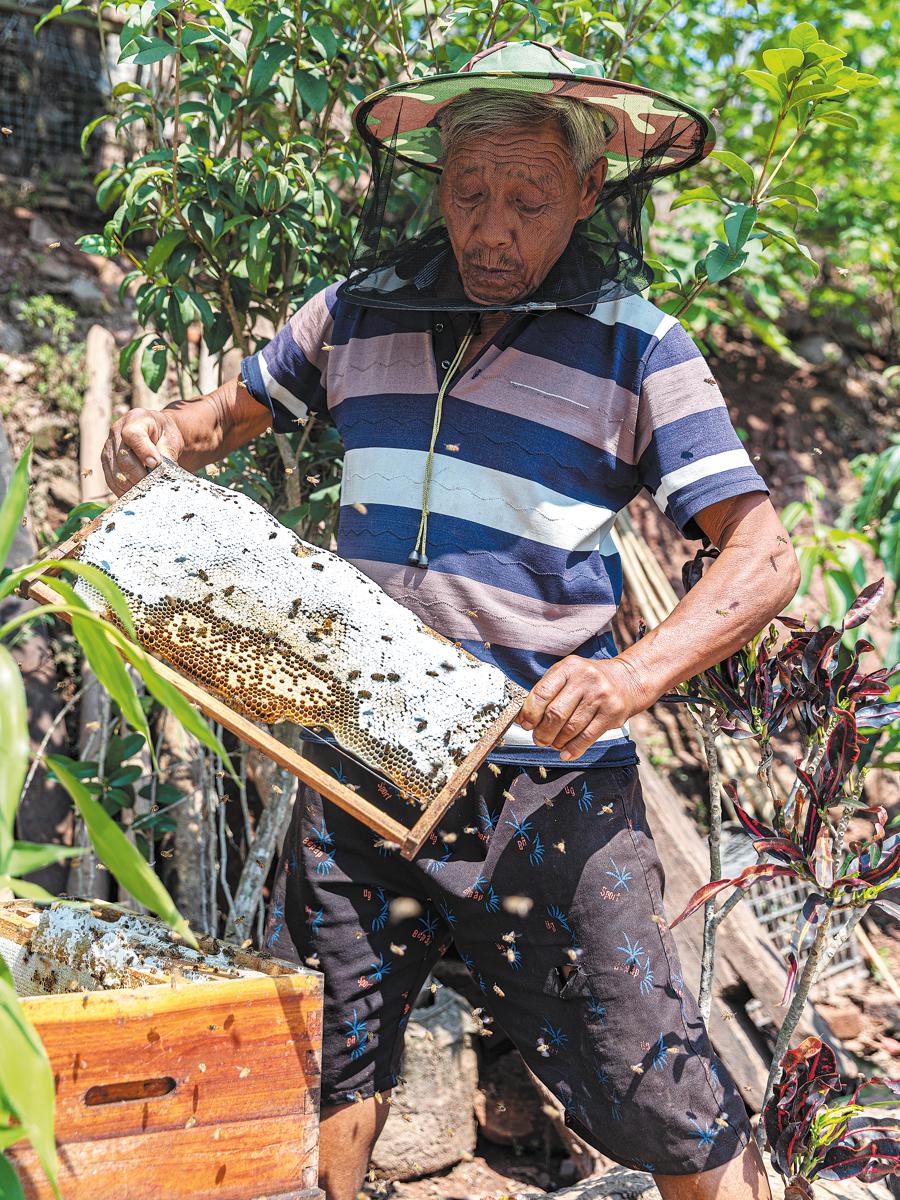Program helps locals live with elephants
Rural communities in Yunnan province shown alternative ways to live off the land


Cash crops and solar
Besides beekeeping, the international NGO also introduced the cultivation of cash crops such as mangos and macadamia nuts to the villagers.
In 2021, Cao said villagers cleared more than 15 hectares of rubber trees surrounding the village because of the plummeting price of rubber.
"So we took the chance to recommend planting mango and macadamia nut trees to them," Cao said.
Cao and his team members invited agricultural experts from the Yunnan Institute of Tropical Crops in Jinghong to Daotangqing and trained villagers on how to manage their orchards.
Nineteen families participated in the project, he said, employing sustainable management practices to reduce pesticide and fertilizer usage, lower management costs and increase ground cover vegetation. "The experts told us that the undergrowth in their orchards can be good for the growth of fruit trees, and they also showed us how to accurately use pesticide and fertilizer," Zhang said.
Through eco-friendly management and planting practices, the project is estimated to be able to achieve a reduction of 971 to 1,256 metric tons of carbon dioxide over 15 years, with an annual reduction of 65 to 84 tons, according to Cao.
"Mango cultivation started to yield profits for the villagers last year, and the nuts will start generating profits this year," he said.
"In the long term, we hope that rubber plantations can be replaced with ecologically friendly, carbon-efficient crops, and the overall quality of the local ecosystem can be enhanced."
Moreover, IFAW China provided assistance to a family of six by installing a 16-kilowatt photovoltaic panel system in their courtyard. "In 2021, we aimed to initiate a pilot project to enhance the utilization of clean energy in the local residents' daily lives," Cao said.
Following a field survey, they identified that the 130-square-meter courtyard of villager Wang Baozhong and his family was sufficient for installing a system comprising 30 photovoltaic panels.
Wang, who has been a patrolman for the nature reserve for many years, was happy to try something new.
So Cao's project allocated 80,000 yuan for the construction of the system in July 2021, which started generating electricity in April 2022. Once the system fulfilled the family's daily electricity needs, any surplus electricity can be transferred back into the local grid.
From April 2022 to November last year, the photovoltaic system produced a revenue of more than 8,000 yuan, Cao said.
"The family kept half of the revenue, and the other half was given to the village for community development," he said.























